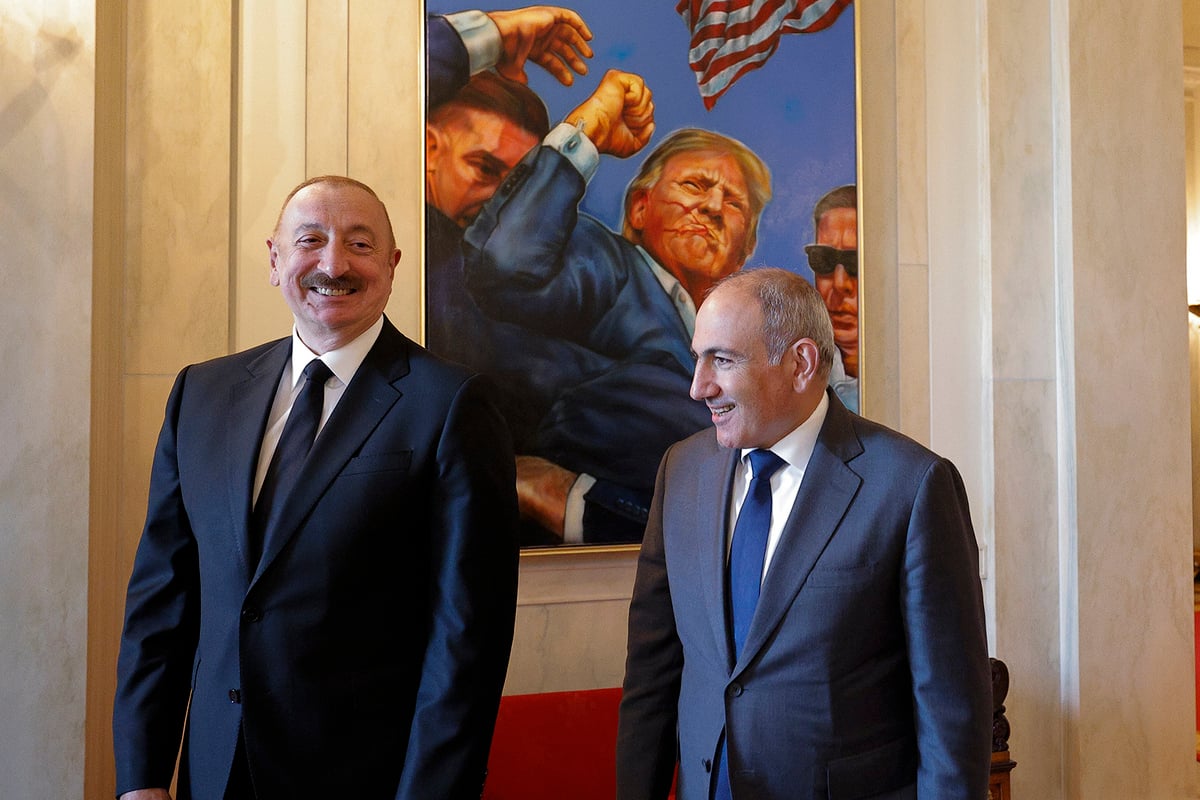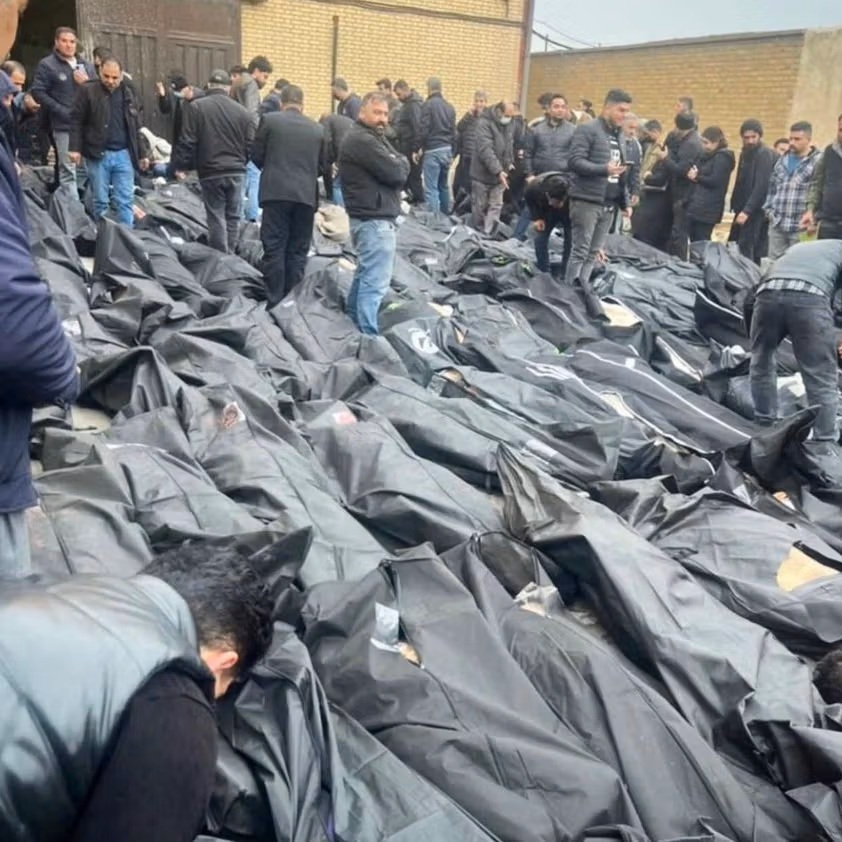
Things are moving at a rapid pace in the South Caucasus since U.S. President Donald Trump hosted the President of the Republic of Azerbaijan (Ilham Aliyev) and the Prime Minister of Armenia (Nikol Pashinyan) to sign the Washington Agreements. “Azerbaijan advanced a peace agenda according to the five principles embedded in international law. While the agreements hold benefit for both our countries”, said Dr Farid Shafiyev, chairman of Baku's most prominent International Relations think tank.
By Arthur Blok
Friend and foe alike agreed that the signing of the Washington Agreements was historic, marking a potential end to a decades-long territorial conflict between Armenia and Azerbaijan. The agreements recognised the territorial integrity of each country and the inviolability of its borders. It also resolved the complex issue of the key transportation corridor connecting mainland Azerbaijan with its Nakhchivan exclave through southern Armenia (see map below).
Trump's mention of the accomplishment during his speech to the United Nations General Assembly in late September indicates a serious attitude in Washington toward the South Caucasus. “His commitment reaffirms American involvement in both our countries. It has the potential for far-reaching consequences, not only between our two countries but also throughout the entire South Caucasus region”, Shafiyev added.
Dr Shafiyev has an impressive career in serving his country. He was a member of the Permanent Mission of Azerbaijan to the United Nations in New York from 1998 to 2001. Also, he served as the former ambassador to Canada and the Czech Republic. He is a well-known public figure recognised as an expert on his country’s international relations and is always ready to share his views.
“Trump’s announcements were made to the world, marking it a formal commitment to peace. It's not only a bilateral commitment, but we are now under the radar of the US. In addition, for Trump consolidating peace in our region is a personal victory”, Shafiyev added.

The start of a new positive trend in the relationship between Armenia and Azerbaijan was also evident from the visit of Andranik Simonian, the head of Armenia’s National Security Service (NSS), to Baku earlier this month. During this unprecedented meeting, Simonian attended an international conference organised by the Azerbaijani government.
Additionally, the visit of Murad Muradov (the founder and deputy director at Topchubashov Centre) to the seminar of the NATO Parliamentary Assembly in Yerevan on September 22 was also noteworthy. It was the first such visit of an Azerbaijani national since the end of the Second Karabakh War, which lasted for 44 days, in which Azerbaijan took back control of the illegally occupied enclave.
Muradov, who co-heads the Baku-based independent think tank, described his visit as an “important step” in the right direction, one that his government fully supports. After winning the war, following years of negotiations and the signing of the Washington Agreements, Azerbaijan is poised to “turn the page and open a new chapter”.
Muradov: “We have resolved all outstanding conflict points with Armenia. Now we have no more things to fight over. Therefore, what remains is for Armenia to accept us and, in essence, amend its Constitution legally. They will have to hold a referendum to change their constitution.
At the famous August 8 press conference where the Agreements were announced, President Ilham Aliyev said Trump “deserves” the Nobel Peace Prize, praising his role in the peace process: “I don’t want to go into the history of some very strange decisions by the Nobel Peace Committee to award the prize to someone who did not do anything at all. But President Trump, in six months, did a miracle.”
Muradov could not agree more. He explained that the press conference also had another significant meaning: “Aliyev wanted to create a good media moment for Pashinyan, so that he can sell it to the audience. To take away the narrative from Armenian nationalists that he is Aliyev’s puppet.”
The developments of the past weeks sent a strong message that America is now involved and that there is no turning back. Muradov: “All parties will benefit economically. It will enhance his chances of winning the referendum next June. The question on the table is: do you want peace or not? Otherwise, it's over for Armenia.”
America’s commitment to peace and stability in the South Caucasus is a thorn in the eye of Russian President Vladimir Putin, who is caught up in an ongoing war with Ukraine. Shafiyev: Of course, Russia is not amused. Russia has no more leverage to spoil it. Impossible. It is now up to Armenia and Russia to find a new modus operandi.”
Armenia and Russia are long-time allies, even after the collapse of the Soviet Union. Moscow demanded a seat at the table in resolving the Karabakh casus but proved unwilling and incompetent to solve the matter sustainably.
Shafiyev emphasised that Baku has considered Russia's geopolitical and national security concerns: “That's why we are a non-aligned country. We always respected their concerns about the presence of Western military alliances in our country.”
The relation between Moscow and Baku has cooled down severely after Russia ‘accidentally’ shot down a civilian passenger plane from Azerbaijan Airlines on 29 December ’24. As per President Aliyev, the crash was obfuscated and "hushed up, and Putin still did not admit guilt, punish those responsible, or even provide compensation for the victims and their families.
Shafiyev: “It is not so simple, Moscow is reluctant to apologise as it sees, unfortunately, as a sign of weakness. It's a mixture of an arrogant attitude, ignorance, and possibly even diminished resources.”
As for Russia’s stance on the signing of the Washington Agreements, Shafiyev wants to wait and see how Moscow will deal with the new situation: “They were always the best allies with Armenia; there are even Russian soldiers on Armenian borders. We do not expect any complications this time. The Agreements felt good, and I think that feeling was mutual.”







South Caucasus dynamics changing swiftly. Armenian Constitutional referendum is one of the last obstacles left. Otherwise everything cleared